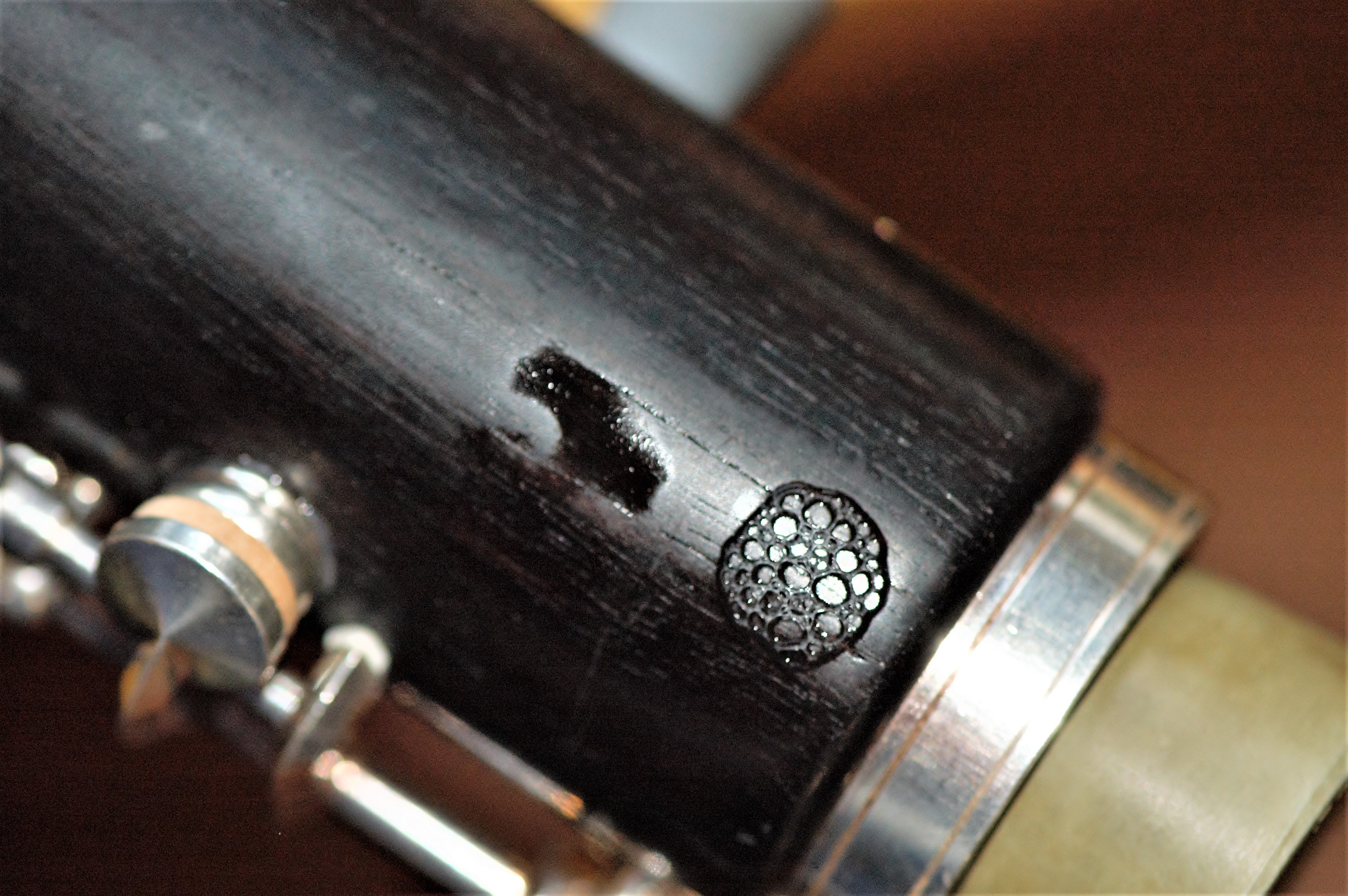-
Lohff & Pfeiffer
About Lohff & Pfeiffer
Iimprint
Contact
Newsletter
Location
L&P team
- Instruments
General
Trade options
About clarinet
Search specific instrument
Ab-clarinet
Eb-clarinet
D-clarinet
C-clarinet
Bb-clarinet
A-clarinet
Mozart basset-clarinet A
G-clarinet
Bassethorn F
Alto-clarinet Eb
Bass-clarinet
Contraalto Eb-clarinet
Contrabasse Bb-clarinet
German-Albert system Bb
Reform Boehm A & Bb
Peter Bastian Instruments
Plateau clarinets
Quartertone clarinet
- L&P Optimization
Optimization
Customization
Specialities
Special Keywork
- Accessories
General
Care products
For instruments
Reeds
Tools for reeds
Straps and hand rests
- Repair
Book time
About Repair
Maintenance
Plating-Surface treatment
Pads
Padding style
Cracks
Tone hole problems
Joints
- Tips & Advice
How to..
Videos
Worldwide external information
Problems & help
Education & learning

.Crack prevention
Crack prevention
Cracks are one of the most feared problems for woodwind players. There are several possibilities to either reduce the risk or to prevent them entirely. You have 3 options:
1. When you have a new instrument or haven't played your instrument for several weeks, we advise following Our break-in recommendation.
2. Keep your instrument moist around 50% - 60% whenever possible. Instrument humidifiers like Dumpit, room humidifiers, and larger plants in your practice room can help. Don't forget to refill the humidifier.
3. Avoid excessive humidity in tone holes. Remove it with cigarette paper or blow it out. If the problem remains, consult us for possible solutions.
4. Avoid exposure to dry warm air like from air-conditioners, hairdryers, fans, longer direct sun exposure, or storing in a hot trunk in the car.
5. Avoid dry cold air as well.
6. When your instrument is very cold, warm it up with your body or by slowly blowing warm air into it.
7. Always place the instrument with the tone holes showing up. When you lay down the instrument onto a table, tilt it so that it lays on the left-hand pinky keys, not the top joint side keys.
8. Take the barrel off after you have played it, and dry the sockets.
9. Get our L&P tone hole crack prevention system installedread more
It eliminates the most dangerous and common cracks in tone holes. Surface, dry, and mechanical cracks, as well as cracks resulting from the tenon, cannot be prevented. But these are very rare.
10. Use a clarinet made out of Greenline, hard rubber or plastic, or one with a tone hole protection like the Legend, Divine or Selmer Evolution models.
Help us to get better
Was this article helpful?
Comments, additions or questions are always welcome at: info@clarinet.dk(C)2011 - by Lohff & Pfeiffer USA-6220 Rhode Island Ave-Riverdale Park MD 20737 - USA - Phone: (812) 929 5556 & 415 470 6879 - info@clarinet.dk - Instruments






